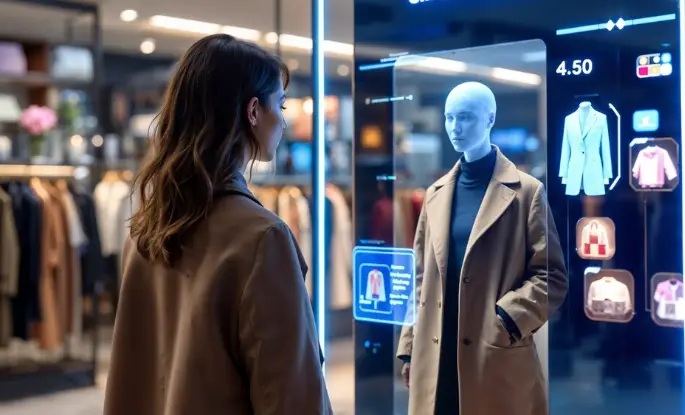As we approach 2025, artificial intelligence (AI) continues to disrupt industries worldwide, with digital marketing standing at the forefront of this transformation. AI’s potential to revolutionize how businesses connect with customers and optimize marketing strategies is undeniable. From personalization to automation, AI is shaping the future of digital marketing in ways that were once unimaginable. As we look to the future, understanding the evolving role of AI in marketing is essential for businesses aiming to stay competitive.
AI has already become a powerful tool in digital marketing, enhancing data analysis, improving customer targeting, and streamlining content creation. However, as the technology advances, its capabilities will only expand. By 2025, AI is expected to be more integrated into marketing strategies, with even more sophisticated algorithms driving decisions that were once solely in the hands of humans. The ability to process vast amounts of data in real-time will allow businesses to make faster, more informed decisions, resulting in hyper-targeted campaigns that resonate with individual consumers.
One of the most exciting areas where AI will impact digital marketing is in customer personalization. Today, AI algorithms already analyze consumer behavior to create personalized experiences, but as AI technology improves, these experiences will become even more tailored. Marketers will be able to deliver dynamic content that adapts in real-time based on a customer’s interactions, location, and preferences. For example, AI could optimize website content, adjust product recommendations, and even craft personalized email marketing messages that feel more like one-on-one conversations. This level of personalization will not only improve customer satisfaction but also drive higher conversion rates, as consumers increasingly expect brands to understand their needs and deliver relevant content.

Moreover, AI-powered chatbots and virtual assistants are expected to become even more sophisticated in the coming years. These AI-driven tools are already handling a significant portion of customer inquiries, but by 2025, they will be able to engage in more complex conversations, providing tailored responses that feel more human-like. Chatbots will not only assist with customer service but also help guide prospects through the sales funnel, delivering targeted information at the right time. This shift will allow businesses to provide round-the-clock support without the need for human intervention, leading to improved efficiency and customer satisfaction.
Another area where AI will make a major impact is in content creation and curation. AI tools are already capable of generating articles, social media posts, and product descriptions, but as the technology advances, it will become increasingly adept at creating high-quality, engaging content at scale. By analyzing trends, consumer sentiment, and engagement data, AI will be able to craft content that resonates deeply with target audiences, optimizing messaging for maximum impact. Additionally, AI will assist in the curation of content, ensuring that businesses share the most relevant and timely information with their audiences, further enhancing their content marketing efforts.
As AI becomes more integrated into digital marketing strategies, automation will play a larger role. AI tools will automate repetitive tasks, such as data collection, ad optimization, and reporting, freeing up marketers to focus on more strategic initiatives. This increased efficiency will enable businesses to run more effective campaigns while reducing human error. Furthermore, AI will improve the accuracy of performance tracking, allowing marketers to gain deeper insights into campaign effectiveness and make adjustments in real-time.
“AI will undoubtedly be a key driver of success in digital marketing, and those who stay ahead of the curve will be the ones leading the way”
In the realm of digital advertising, AI is set to redefine the way businesses reach their target audiences. Machine learning algorithms will continue to evolve, allowing for more precise targeting of ads based on user behavior, demographics, and even emotional triggers. For example, AI could predict which ad format is most likely to resonate with a specific individual, optimizing ad placements for maximum engagement. This level of targeted advertising will not only improve the effectiveness of campaigns but also reduce wasted ad spend, making marketing budgets more efficient.
AI is also helping businesses navigate the growing complexity of data privacy regulations. As consumer data privacy concerns rise, AI tools will assist in ensuring that marketing efforts comply with the latest privacy laws, such as the GDPR and CCPA. AI will enable businesses to manage and protect consumer data more effectively, ensuring that customer interactions remain secure while still providing the personalized experiences that users have come to expect.
While AI holds incredible promise for the future of digital marketing, it also raises questions about the ethical use of technology. As AI systems become more powerful, businesses will need to ensure that their use of AI is transparent, responsible, and respectful of consumer privacy. The challenge for marketers will be to strike a balance between leveraging AI to enhance customer experiences while maintaining trust and ethical integrity.
In the coming years, AI will continue to evolve, transforming the digital marketing landscape and offering businesses new opportunities to engage with customers. For companies to remain competitive, they will need to embrace AI and integrate it into their marketing strategies. Those that do will not only be able to optimize their campaigns and improve efficiency but also deliver more meaningful, personalized experiences that resonate with today’s tech-savvy consumers. As we move into 2025, AI will undoubtedly be a key driver of success in digital marketing, and those who stay ahead of the curve will be the ones leading the way.


